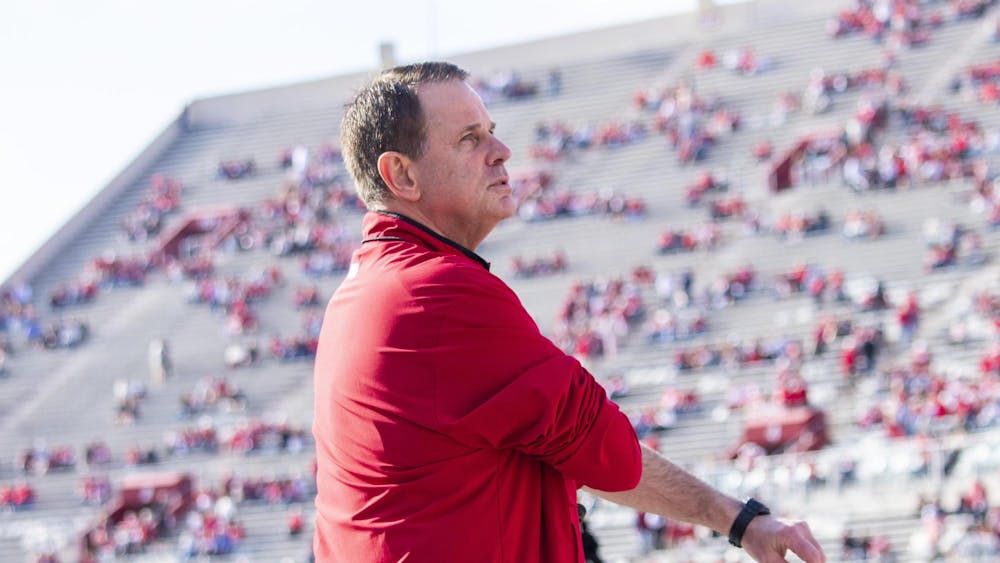On Monday, the La Casa Latino Cultural Center held a panel for students to attend and participate in a discussion concerning what it means to be a “macho Latino.”
The panel consisted of Mike Szakaly, the senior associate director of Student Central and co-founder of the Latino Community Center in Bloomington; Maurer School of Law Professor Luis Fuentes-Rohwer; and Gabriel Escobedo, a graduate student studying anthropology. Escobedo almost became a music student because he plays the cello, he said.
The panel discussed three main topics: leadership, politics and masculinity. The panel began discussing role models, and Szakaly said though there are negative role models, focusing on the positive role models is finding someone who has established success.
“The perception is as important as the reality,” Szakaly said. “Whether we like it or not, we are all role models.”
Escobedo said he thinks of his father as his role model, because his father is a person who directly ?impacts his life.
“There aren’t enough Latino men role models out there,” Escobedo said. “You might see a few people here and there, Latino men, that are doing great work that you want to follow, but you won’t see them on the news.”
The next topic up for discussion was Latino men in politics. Each person on the panel said they do not believe there are enough Latinos involved in politics.
Fuentes-Rohwer said other people constantly have opinions about Latinos, and that’s just life.
A highly spoken about issue at last night’s event was incarceration rates of Latinos as well as African-American men.
“People see Latinos and they think all kinds of stuff,” Fuentes-Rohwer said. “If you look at the numbers of incarcerations in the world, it’s low. When you get to the U.S, the curve begins to rise sharply, and then you get to Latino men and the curve is sharper. Then you get to black men and that’s the sharpest turn.”
Roberto Ortiz is an online IU student who plans to bike around the world while continuing classes in August. Ortiz said he feels less alone as a Latino man after attending the panel.
“Growing up, it is very confusing because my dad is going through a huge shift in society,” Ortiz said. “He’s got this whole set of problems that he just didn’t have time to guide me. I think that’s a big thing with Mexican-Americans.”
The panel wrapped up with a discussion about what it means to be a macho man in Latin culture. Escobedo said his view of macho has changed over the course of his school career. He said he now thinks getting an education makes a man macho.
“My idea of macho was being able to hold yourself in a fight,” Escobedo said. “Then with my family sees who can drink the most, and then that was my idea of macho.”
Szakaly said he doesn’t get the macho question very much in his professional career, especially not in Bloomington or around campus.
“Within years, my ideas of what it meant to be a man changed,” Escobedo said.




